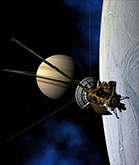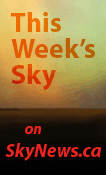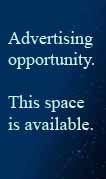In Depth Hands-On Workshops
Two in-depth, hands-on workshops will be conducted on Thursday. Each workshop will be three hours in length and limited to 40 people each. Since laptop computers will be required for most workshops, please read the workshop descriptions carefully to determine if you meet the prerequisites for the workshop. If you wish to participate in a workshop, you must register and pay a $20 workshop fee for each workshop, in advance.
Andreas Gada, "Capturing The Motion Astro-Imaging Workshop", Main Tent, Thursday 10:00 a.m. 1:00 p.m., has been involved in astronomy since his teens. He is one of the founders and a Past President of the North York Astronomical Association and in 1982 started Starfest. When not working on Starfest he enjoys doing astrophotography and puttering in the "dungeon", machining telescope parts.
Digital SLR cameras have revolutionized astrophotography. The compact nature of these cameras combined with their large sensors, built-in noise reduction, wide exposure range and ability to be used as both a stand-alone camera with conventional lenses, or as a computer-controlled camera attached to a telescope, make them ideally suited for many types of astrophotography. As a result one no longer needs specialized CCD cameras to image the night sky, the planets and other solar system objects.
In this workshop we explore how DSLR cameras, combined with relatively inexpensive software, can be used to create movies that capture the motion of the night sky and other solar system objects.
We begin with the basics by looking at what you need to capture the motion of the stars across the sky, using a camera mounted on a tripod with a minimum amount of equipment and image processing. We then attach the camera to the telescope to capture the motion of the moon through the Pleiades and look at what additional image capture/processing software this may entail. Once we are comfortable with this, we explore the challenge of imaging a total solar eclipse from just before first contact, when the first nibble is taken out of the sun, through totality, to just after fourth contact. We then use these images to create a time-lapse movie of the event.
This is a hands-on workshop and you will need to bring your laptop with you for the in-class exercises.
To participate in this workshop, ideally you will need to have a high-speed laptop (minimum 1.6 Megahertz), with one gig of RAM and a minimum of 50 Megs of free space on your hard drive. You should also have a working copy of Photoshop (any version), and windows Movie Maker. As part of the workshop you will be given a demo disk containing images that will be used for the hands-on exercises as well as trial versions of ProShow Gold, Images Plus, and MaxDSLR.
Scott Ireland, "Digital SLR Image Processing Workshop", Main Tent, Thursday 2:00 5:00 p.m., lives in South Florida and has been photographing nature and the heavens for over twenty-five years. His photographs have been published internationally in many books, textbooks and periodicals, and have appeared in various museum and gallery exhibits. He is the author of the recently published book, Photoshop Astronomy, and is a frequent lecturer on image processing topics.
This hands-on workshop will focus on how to process digital SLR astro images taking darks, calibration, stacking (all using ImagePlus), then how to use DDP (Digital Development) and ultimately process the final image in Photoshop. It will take the images step-by-step through the entire image processing sequence. Materials will be handed out that include a course booklet and a CD-R containing example images. PARTICIPANTS ARE ENCOURAGED TO BRING THEIR LAPTOP COMPUTERS (WITH PHOTOSHOP INSTALLED OF COURSE!) TO WORK THROUGH THE EXAMPLES IN REAL TIME AS THE TECHNIQUES ARE PRESENTED.




